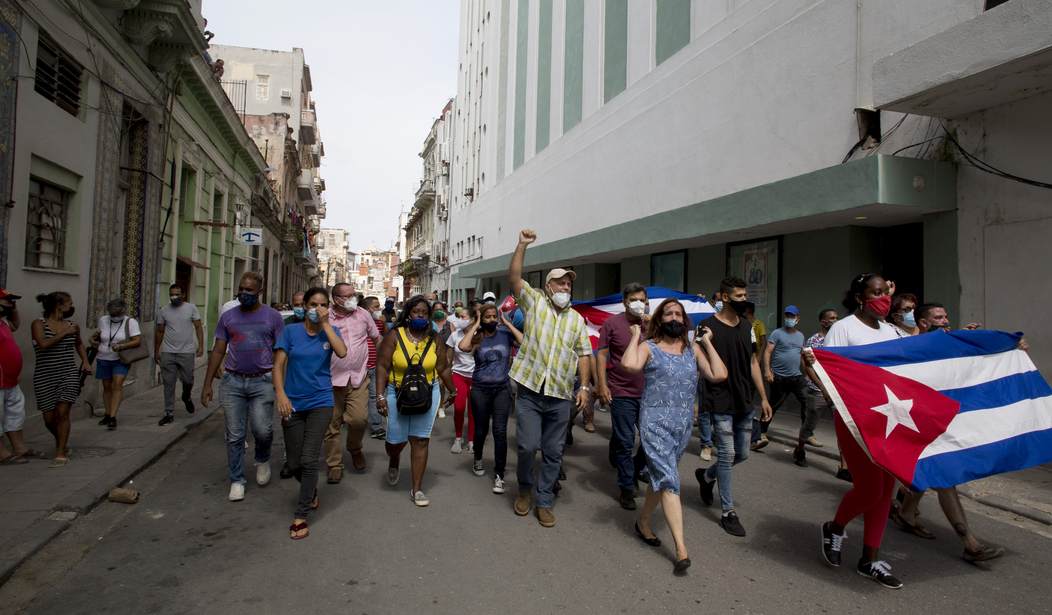In a letter to the Biden administration, former officials are pushing for major changes in US policy toward Cuba, including its removal from the State Sponsors of Terrorism List. Of the many eleventh-hour policy proposals before President Joe Biden, as he prepares to leave office next month, this may be among the most misguided.
The letter is signed by alumni of past administrations, including Vicki Huddleston, who served as Chief of Mission in Havana under both Clinton and Bush, and Ben Rhodes, the former deputy national security adviser who played a key role in the 2015 "thaw" in US-Cuban relations under Obama.
The oppressive and communist Castro regime has governed the island for more than sixty years. Despite decades of US sanctions and pressure, the Cuban government continues its human rights violations, political persecution, and economic plunder.
Humanitarian Concerns
While the letter pushes for changes under the guise of solving a humanitarian crisis, it is a deeply flawed proposal. Pointing to Cuba's failing energy grid, child malnutrition, and deteriorating public services as justifications for normalizing relations, the signatories also contend these conditions are responsible for the massive uptick in Cubans fleeing the island nation in recent years.
The letter states:
...most Cubans have lost hope, precipitating the largest exodus of migrants from Cuba in its history.
While the situation in Cuba is dire, the idea that the US should make sweeping changes to our foreign policy in response to this crisis overlooks one critical factor: the Cuban regime itself.
Cuba’s government has been the architect of its downfall for decades, mismanaging resources and stifling economic reform. The state's control over almost every aspect of Cuban life, and its economy, has led to widespread poverty along with a heavy reliance on foreign assistance.
And the signatories admit Cuba’s crisis was caused by the regime, not American policies, writing:
In no uncertain terms do we exonerate the Cuban government for its insufficient and incoherent policy reforms that have in large part caused this crisis.
Normalizing relations with Cuba in response to the ongoing immigration crisis would essentially reward the government responsible for the suffering and mass exodus of its citizens. At this stage of the Biden administration, the crisis at the US border is a political issue—one that has been largely solved by the voter mandate for incoming President Trump to address it.
Related:
Remember That Intelligence Report on Havana Syndrome? Turns Out It Was Bunk
Cuba’s Terrorism Designation
Cuba’s place on the State Sponsors of Terrorism List is another sticking point. The letter’s signatories argue that there is no credible evidence linking Cuba to international terrorism and that the designation only harms Cuba’s ability to engage in commerce, particularly in tourism.
But, it is no mistake that Cuba has been given this designation.
Cuba was previously included on the State Sponsors of Terrorism List from 1982 to 2015. It was only during Obama’s administration that Cuba was removed from the blacklist in 2015 as part of a wider thaw in US-Cuba relations.
Under the Trump administration, Cuba was reinstated on the list in 2020, a move widely seen as a response to Cuba’s ties with the Venezuelan regime and its role in supporting anti-American insurgencies. The Cuban government has long supported groups that engage in terrorism, particularly in Latin America, and provided refuge to militants. Normalizing relations with a government that continues to support terrorism undermines the credibility of the United States.
Standing Firm
Normalizing relations with Cuba now, especially without any concessions from the Cuban government, would be a capitulation of the American values that inform our policy on Cuba. It placates a regime that continues to stifle political opposition, suppress free speech, and deny basic freedoms to its people.
The proponents of the reforms warn of the implications of having a failed state close by to the mainland United States, writing:
However, to address the scope of the current crisis in Cuba, we believe that your administration must pay close attention and act decisively to mitigate the potentially dire implications of having a failed state just 90 miles off our shores.
For many in the Cuban-American diaspora, a nearby failed communist state is not the worst-case scenario—continued oppression is.
Moreover, implementing such a policy in the final days of the Biden administration would suggest political expediency, not a long-term strategy aimed at meaningful change for the Cuban people.
Thankfully, these last-minute changes to US policy concerning Cuba are unlikely. In response to questions about the potential removal of Cuba from the State Sponsors of Terrorism List, Secretary of State Antony Blinken clarified that he does not anticipate any change to US-Cuban foreign policy before Biden leaves office.
The Cuban people are suffering, but rewarding the regime won't help them. Instead, the US should maintain pressure on the Cuban government for reform while offering humanitarian aid directly to the Cuban people. Only by holding the regime accountable can the Cuban people achieve the freedom and prosperity they deserve.













